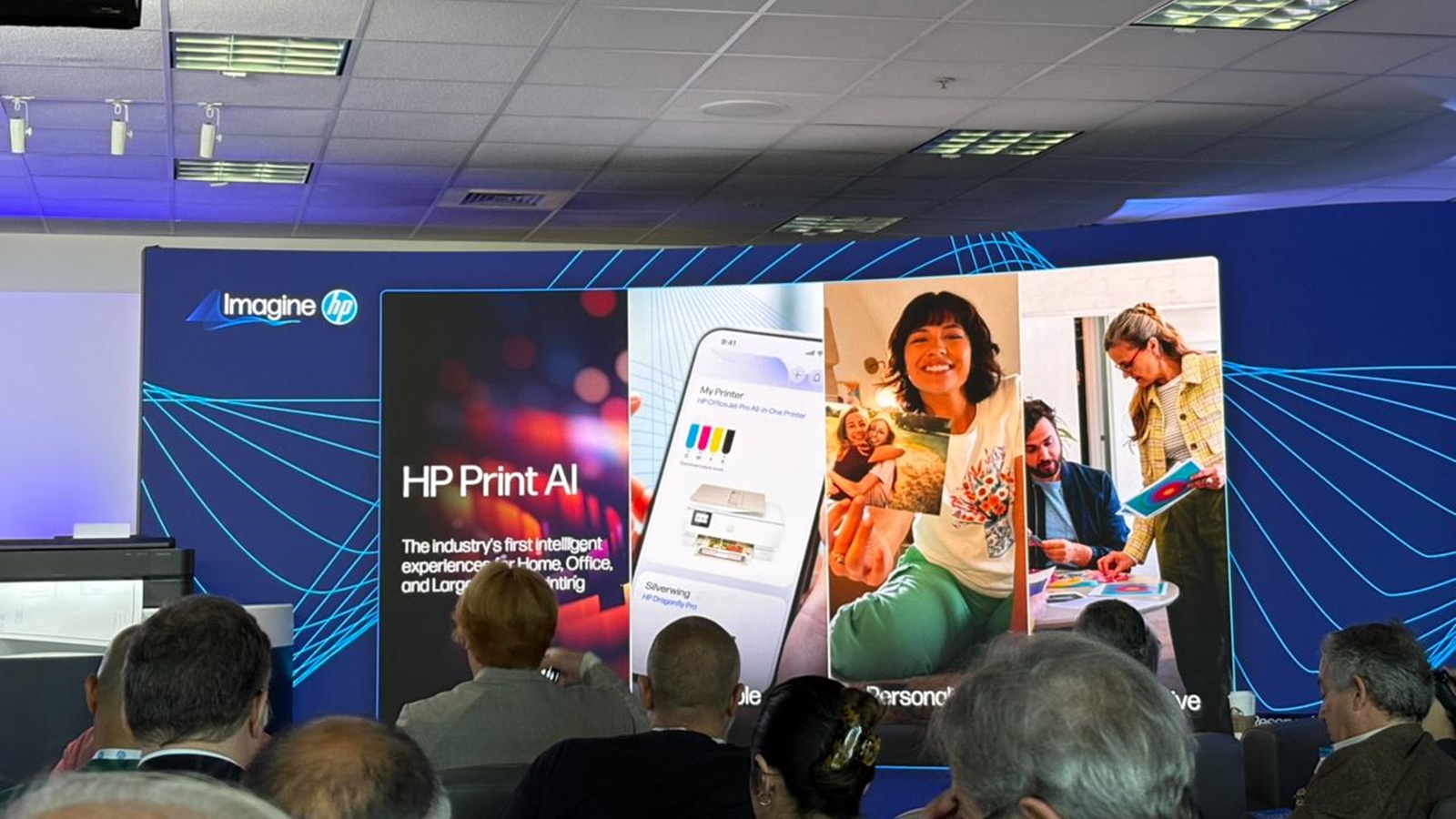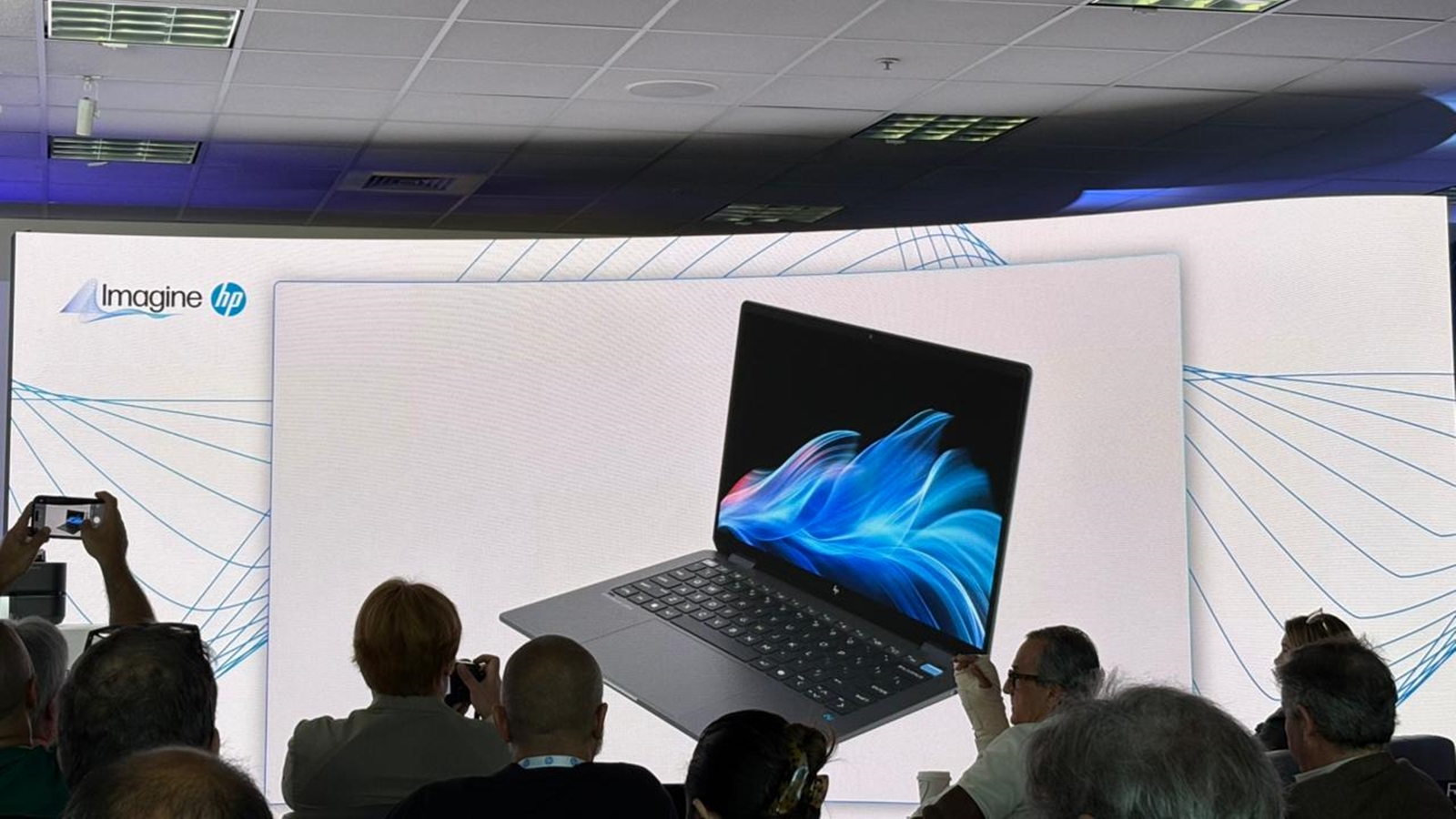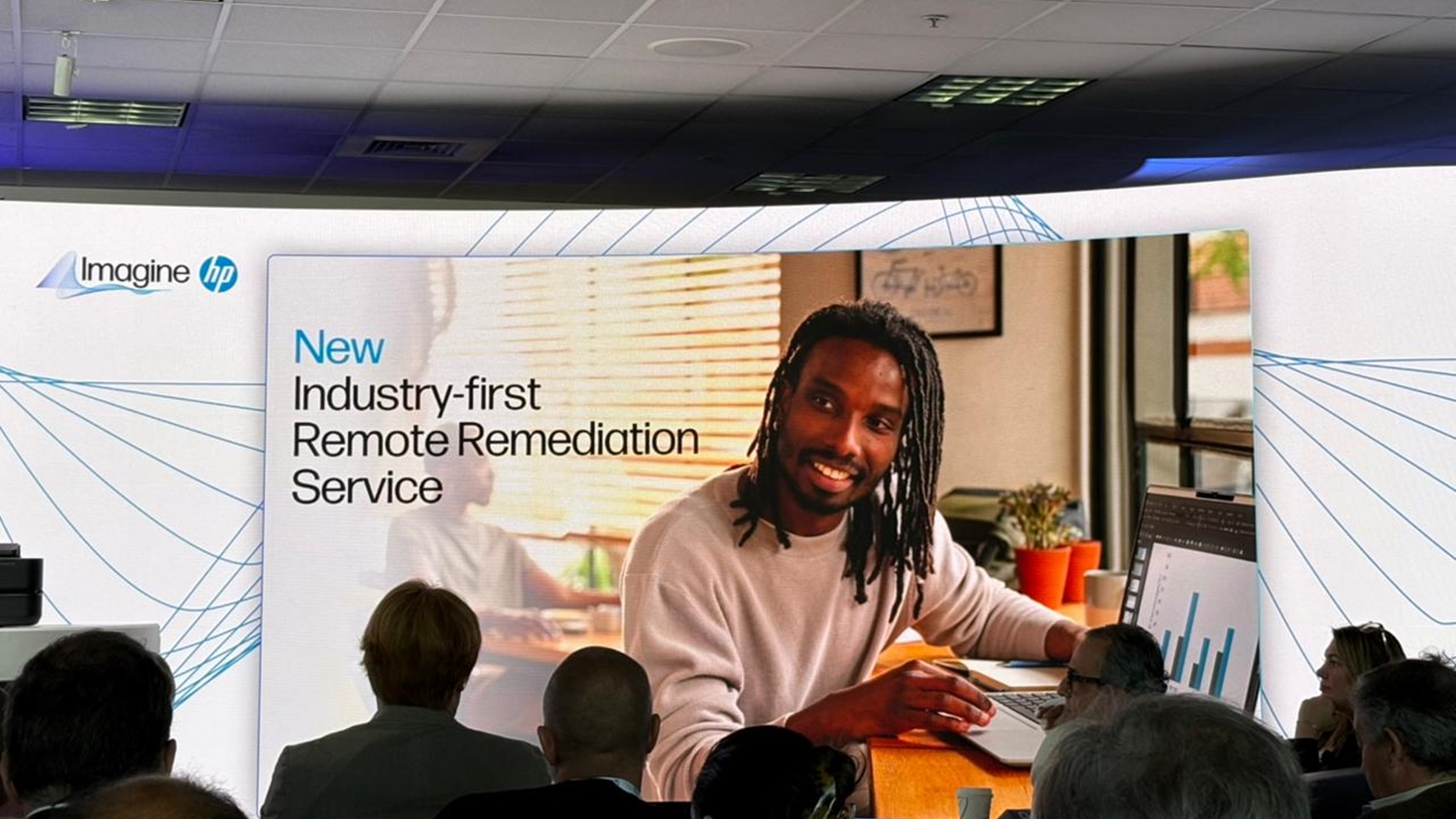HP Inc. showcased its vision of becoming more than just a PC vendor by stepping beyond hardware to create software solutions and services. The company aims to tap into enterprises and businesses in hopes of building an ecosystem around AI PCs.
The Imagine 2024 event kicked off in the heart of San Francisco, at HP’s headquarters in Palo Alto, where the company unveiled its strategy for how artificial intelligence will become the new standard as the future of work evolves. On Tuesday, HP began revealing its plans with a keynote presentation that demonstrated the capabilities of these new AI-ready machines and the company’s commitment to developing solutions that leverage the processing power of AI PCs for local work.

 HP made it clear that the company is fully committed to the commercial market with AI-enhanced computers.
HP made it clear that the company is fully committed to the commercial market with AI-enhanced computers.
“We are going to build platforms with AI-powered insights and deliver smart technologies that enable personalised experiences,” said Enrique Lores, President and CEO of HP Inc., addressing a packed hall full of attendees. “AI-enabled devices in the workplace will be among the first interactions most people have with AI, and once they become familiar with that, they will also apply it to their personal lives.”
2024 has been a year of AI PCs, with the entire industry betting on a new generation of personal computers supercharged with artificial intelligence. The potential for AI integration into PCs and laptops has reinvigorated analysts’ and investors’ interest in the PC space after a slowdown over the past several years. Gartner forecasts that AI PC shipments will reach 22 per cent of total PC shipments in 2024. However, the growth will come primarily from enterprises, which will be the biggest buyers of AI PCs.
At its Imagine event, HP made it clear that the company is fully committed to the commercial market with AI-enhanced computers. “We are going to double down on our commercial business, which represents a large and growing market, estimated to be more than $400 billion,” Lores said
 The Imagine 2024 event kicked off in the heart of San Francisco, at HP’s headquarters in Palo Alto.
The Imagine 2024 event kicked off in the heart of San Francisco, at HP’s headquarters in Palo Alto.
Although HP showcased two new premium AI-focused PCs—the HP OmniBook Ultra Flip and the EliteBook X—each targeting the consumer and enterprise markets, the main focus is on the software vendors who will work closely with HP to create solutions that drive users toward the next generation of PCs. On stage, HP brought out a couple of software vendors (ISVs), including Zoom, who are developing solutions that will leverage the new processing power that AI PCs offer over previous-generation computers.
The focus was primarily on showcasing the progress HP, along with its ISVs, has made in creating use cases and offering solutions that go beyond what Microsoft is doing with its Copilot AI chatbot. This development highlights how an independent AI software ecosystem is emerging alongside the industry’s biggest players, enabling companies like HP to introduce new software capabilities on their AI PCs, tailored to a specific segment.
Story continues below this ad
 2024 has been a year of AI PCs, with the entire industry betting on a new generation of personal computers supercharged with artificial intelligence.
2024 has been a year of AI PCs, with the entire industry betting on a new generation of personal computers supercharged with artificial intelligence.
Beyond the hardware it is known for, HP has been pivoting to its services business and creating hybrid solutions, positioning the company in a new growth market. Earlier this year, HP unveiled its AI Creation Center, a new software suite for AI PCs involved in AI development. It has also launched the HP AI Studio and Gen AI Lab. As AI development progresses at breakneck speed, the company is targeting a new market in data engineers and developers with HP Boost, an “industry-first solution that revolutionizes GPU sharing across HP AI workstations.” This solution works by creating a network of HP’s workstations, whether mobile or desktop, to share available GPU resources for intensive AI tasks. It operates on demand and remotely, allowing professionals to work without being tied to a desk.
With an evolving AI industry, HP also indicated how it sees its printers—where it leads the market share—adapting to new use cases in the generative artificial intelligence world. The company showcased generative AI tools, including a digital assistant similar to ChatGPT but designed for printers, as well as a feature called “Perfect Output.” This feature intelligently reformats and reorganises content to fit perfectly on the page, automatically detecting unwanted elements like ads and web text, and only printing the essential content you need.
 The focus was primarily on showcasing the progress HP, along with its ISVs, has made in creating use cases and offering solutions that go beyond what Microsoft is doing with its Copilot AI chatbot.
The focus was primarily on showcasing the progress HP, along with its ISVs, has made in creating use cases and offering solutions that go beyond what Microsoft is doing with its Copilot AI chatbot.
Some analysts who follow HP have been counting on the company’s move beyond hardware to create an ecosystem around AI PCs. “They showed generative AI in printers, showcased services, and had new AI PCs. I think more ISVs is a good thing because the more applications come to AI PCs, the better it is for the ecosystem,” Anshel Sag, a Principal Analyst at Moor Insights & Strategy, told indianexpress.com.
“It will be interesting to see how they balance between Microsoft and their involvement with AI and ISVs on their own. Clearly, they have chosen some ISVs to showcase AI capabilities, and it looks like a lot of the focus is on the creative side,” he added.
Story continues below this ad
 With an evolving AI industry, HP also indicated how it sees its printers—where it leads the market share—adapting to new use cases in the generative artificial intelligence world. (Express photo by Anuj Bhatia)
With an evolving AI industry, HP also indicated how it sees its printers—where it leads the market share—adapting to new use cases in the generative artificial intelligence world. (Express photo by Anuj Bhatia)
HP is the latest PC vendor trying to offer differentiated experiences on its AI PCs, focusing on developing unique software solutions and services, either on its own or by working closely with independent software vendors (ISVs).
“I think there’s so much AI across the board, and where they are innovating is in software. There are more opportunities for them to differentiate because ultimately, many are using the same processors and components in their PCs. These vendors want to demonstrate that they are more than just hardware, and many are trying to evolve their services and use AI to enhance those offerings, primarily in maintenance and customer service.”
(The writer is in Palo Alto, California attending Imagine 2024 on the invitation of HP)



 HP made it clear that the company is fully committed to the commercial market with AI-enhanced computers.
HP made it clear that the company is fully committed to the commercial market with AI-enhanced computers. The Imagine 2024 event kicked off in the heart of San Francisco, at HP’s headquarters in Palo Alto.
The Imagine 2024 event kicked off in the heart of San Francisco, at HP’s headquarters in Palo Alto. 2024 has been a year of AI PCs, with the entire industry betting on a new generation of personal computers supercharged with artificial intelligence.
2024 has been a year of AI PCs, with the entire industry betting on a new generation of personal computers supercharged with artificial intelligence. The focus was primarily on showcasing the progress HP, along with its ISVs, has made in creating use cases and offering solutions that go beyond what Microsoft is doing with its Copilot AI chatbot.
The focus was primarily on showcasing the progress HP, along with its ISVs, has made in creating use cases and offering solutions that go beyond what Microsoft is doing with its Copilot AI chatbot. With an evolving AI industry, HP also indicated how it sees its printers—where it leads the market share—adapting to new use cases in the generative artificial intelligence world. (Express photo by Anuj Bhatia)
With an evolving AI industry, HP also indicated how it sees its printers—where it leads the market share—adapting to new use cases in the generative artificial intelligence world. (Express photo by Anuj Bhatia)





